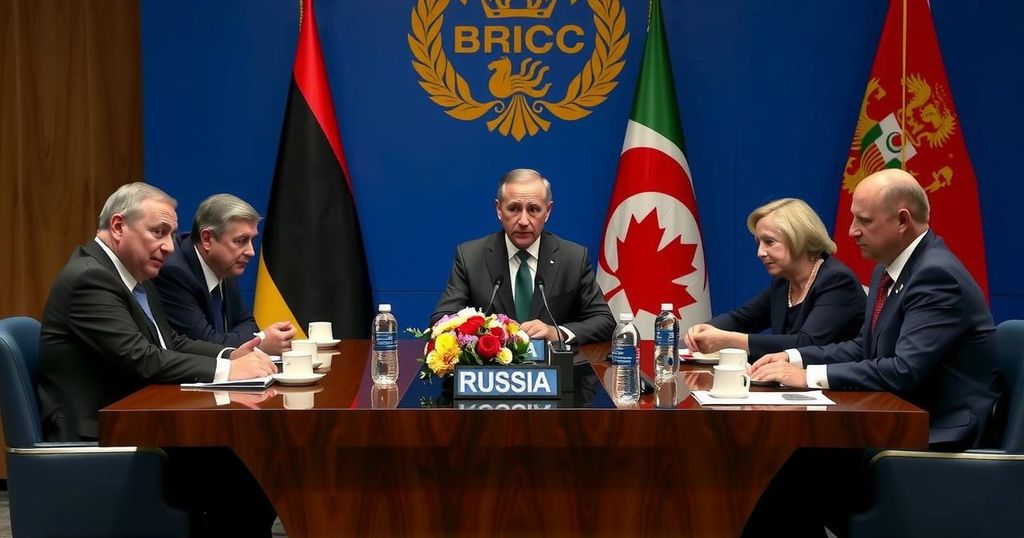The BRICS summit hosted by President Vladimir Putin in Russia faced absences from key leaders, President Lula of Brazil and President Diaz-Canel of Cuba, citing health and energy issues respectively. With the recent expansion of BRICS, the summit aims to reinforce the group’s role as a counterweight to Western influence amid Russia’s international isolation.
The recent BRICS summit, hosted by President Vladimir Putin in Russia, witnessed the notable absence of two key leaders: President Lula da Silva of Brazil and President Miguel Diaz-Canel of Cuba. Kremlin advisor Yury Ushakov announced that both leaders had to withdraw from the summit due to unforeseen circumstances, as reported by Russian state media on October 21. President Lula, age 78, experienced a minor brain hemorrhage after a fall at his home over the weekend and will be attending the summit via videoconference. In contrast, President Diaz-Canel is reportedly facing significant energy issues in Cuba. The BRICS coalition, which includes Russia, China, India, Brazil, and various other nations, is recognized as a collective of emerging economies often seen as a counterbalance to Western influence. Notably, four new members—Egypt, Ethiopia, Iran, and the United Arab Emirates—joined BRICS at the beginning of 2024. This addition marked an expansion for the group for the first time since South Africa was welcomed as a member in December 2010. Cuba has expressed interest in joining the BRICS as a “partner country” through an official letter addressed to President Putin, as stated by a Foreign Ministry official on October 8. Amidst increasing international isolation, particularly following geopolitical tensions, Russia aims for the summit to demonstrate its continued influence and partnerships, despite a shift towards nations such as North Korea for support. The Kremlin characterized the summit, which commenced on October 22, as one of the most significant foreign policy events in Russia’s recent history.
The BRICS association emerged as a platform for emerging economies to collaborate and counterbalance dominant Western powers. Originally composed of Brazil, Russia, India, China, and South Africa, this coalition has expanded to include additional nations, reflecting a growing desire among countries to partake in multilateral discussions and trade outside the Western sphere of influence. The significance of this particular summit is heightened by the political dynamics surrounding Russia’s external relations, especially following its isolation due to ongoing conflicts and the global geopolitical climate. The participation of global leaders in this summit is a crucial indicator of the shifting alliances and diplomatic relations that define contemporary international politics. The absence of key leaders from Brazil and Cuba at this event underscores the complexities and challenges faced by the BRICS coalition, especially in light of their respective national circumstances, which significantly affect their international responsibilities and engagements.
In conclusion, the BRICS summit in Russia has been marked by the notable absence of the Brazilian and Cuban leaders, whose non-attendance underscores personal and national challenges. The summit itself aims to reinforce the coalition’s presence on the global stage, especially as Russia seeks to demonstrate its resilience in the face of international isolation. The ongoing discussions within BRICS highlight the evolving nature of international alliances and the continued relevance of collective economic cooperation among emerging economies.
Original Source: kyivindependent.com







